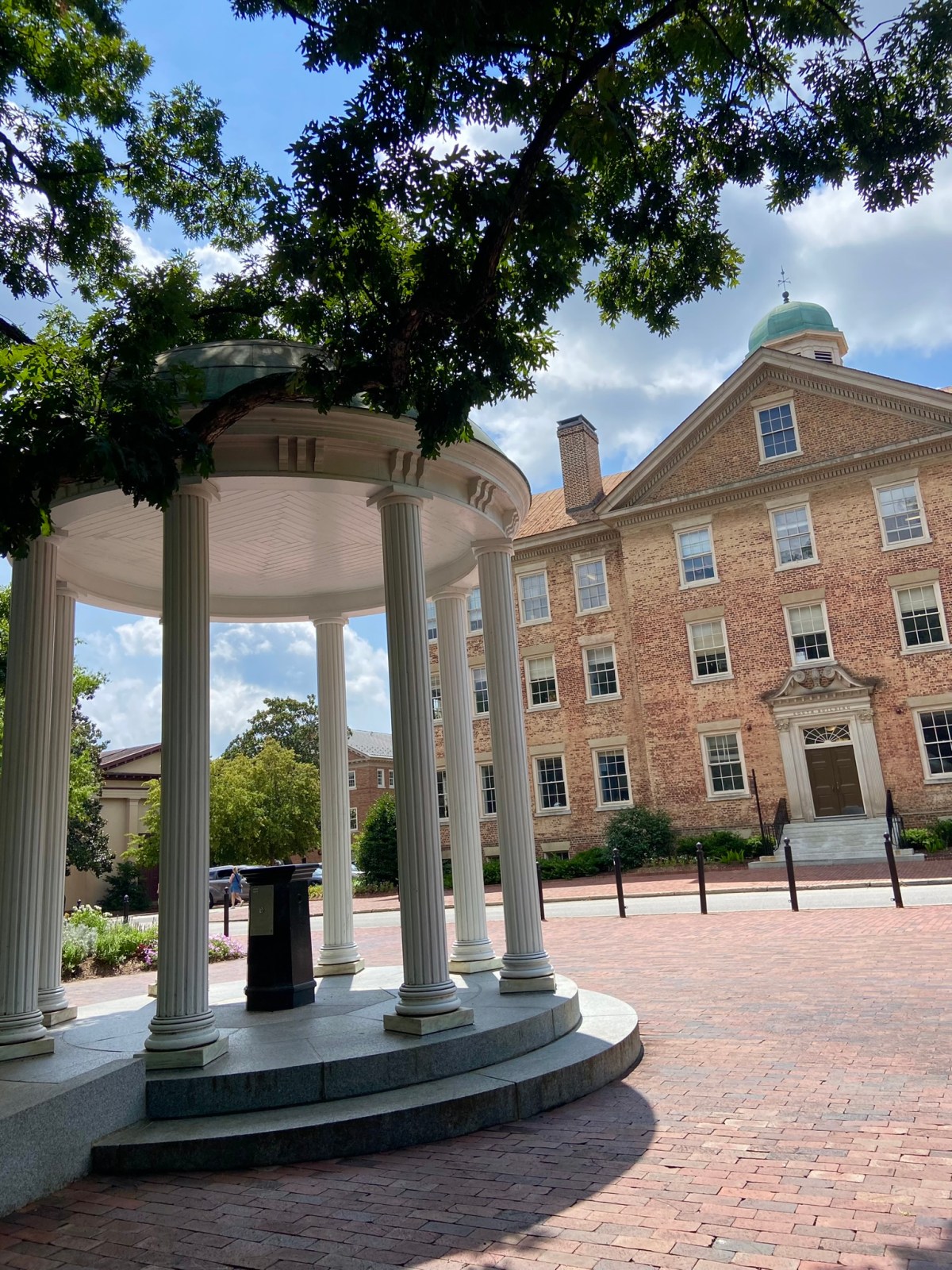This story originally published online at The Assembly.
University of North Carolina at Chapel Hill leaders revealed a plan on Wednesday to cut approximately $70 million in costs—or 2 percent of its operating budget—over the next two fiscal years ahead of anticipated federal and state funding reductions.
Nate Knuffman, vice chancellor for finance and operations, said during a Board of Trustees committee meeting that the plan includes $17.2 million in cuts to nonresident financial aid. About $8.5 million in savings will come from administrative staff reductions in the first phase of a restructuring plan called ServiceFirst. Knuffman said the goal is to cut positions “primarily through attrition.”
Another $3.9 million will be saved by eliminating vacant positions, and $10.3 million will come from what Knuffman called “unit optimization” of non-academic teams. The university said in a statement that leaders from athletics, student success, the graduate school, and the NC Collaboratory, a research funding agency established by the General Assembly, had volunteered to find cuts. It is unclear if the process will result in job reductions.
The plan took some hints from the state Senate’s budget proposal on areas to target. Knuffman said UNC-CH would reduce spending by $4.8 million for academic centers and institutes and by $2 million on “low-performing” academic programs. Knuffman said no decisions have been made on what centers or programs are on the chopping block, and the university will engage the campus community on that process.
The university expects to reduce its spending by $29 million in fiscal year 2026, with most of the other identified savings to be achieved by fiscal year 2027. Other areas facing cuts include: $7.3 million from phasing out a faculty support program called Elevate; $9.2 million from reducing food procurement and purchasing costs; $1.9 million from increased use of incentives for early faculty retirement; $2.9 million in energy savings; and $1.5 million from other “administrative efficiencies.”
Knuffman’s presentation said that if federal or state cuts do not occur as expected, the savings would be reinvested in “strategic priorities.”
“Our leadership team is taking a thoughtful and targeted approach, looking into areas that can be streamlined for greater efficiency, strengthening our operations while meeting our fiduciary responsibility to the people of North Carolina,” Knuffman, Chancellor Lee Roberts, and interim Provost James Dean wrote in a university-wide email shortly after the board’s presentation. “Each of these decisions comes with true costs, yet we believe that this measured approach will enable us to continue to pursue our goal of becoming the best public university in the country.”
The board instructed the university in March to sequester $50 million in anticipation of financial challenges. Knuffman said the uncertainty about state and federal government funding influenced how the university thought about where to tighten its belt.
He pointed to reductions in federal grant money as one major factor. Research funding cuts from the National Institutes of Health and National Science Foundation could cost UNC-CH more than $100 million annually, according to Chronicle of Higher Education estimates.
UNC-CH is among many schools across the country grappling with those cuts. Duke University is trying to reduce its costs by $350 million, or about 10 percent of its expenses.

UNC-CH is also bracing for proposed multi-million-dollar reductions to parts of the university in the initial House and Senate budgets. While budget negotiations have stalled over House and Senate Republicans’ tax cut disagreements, legislators are currently working on a mini budget bill to fund some parts of the state government. Beyond a $3.5 million reduction in nonresident graduate tuition waivers, Knuffman said the mini budget does not include big changes to UNC-CH.
The trustees lauded Knuffman’s and the university’s efforts to trim costs. “We should always be finding cuts,” said Marty Kotis, the chair of the budget and finance committee.
Kotis also praised the idea of reducing financial aid for nonresident students, quoting the state constitution’s requirement that the university be free “as far as practicable” for the state’s people. “It doesn’t say people from other states,” he added. “Let the nonprofits and other groups—and there are lots—provide additional assistance to out-of-state students.”
Trustee Jim Blaine said he hoped more units beyond the four that agreed to proactively look for cuts would eventually be scrutinized as part of the unit optimization.
John Preyer, the outgoing board chair, remarked at the end of the presentation on how far he believes the university has come on budgeting and managing costs since he joined the board in 2019.
“It’s an invaluable exercise to do this before it becomes absolutely imperative,” he said.
Correction: An earlier version of this story mistakenly attributed Jim Blaine’s comments about unit optimization to another trustee.
Erin Gretzinger is a higher education reporter at The Assembly. She was previously a reporting fellow at The Chronicle of Higher Education and is a graduate of the University of Wisconsin at Madison. You can reach her at [email protected].
Matt Hartman is a higher education reporter at The Assembly. He’s also written for The New Republic, The Ringer, Jacobin, and other outlets. Contact him at [email protected].
